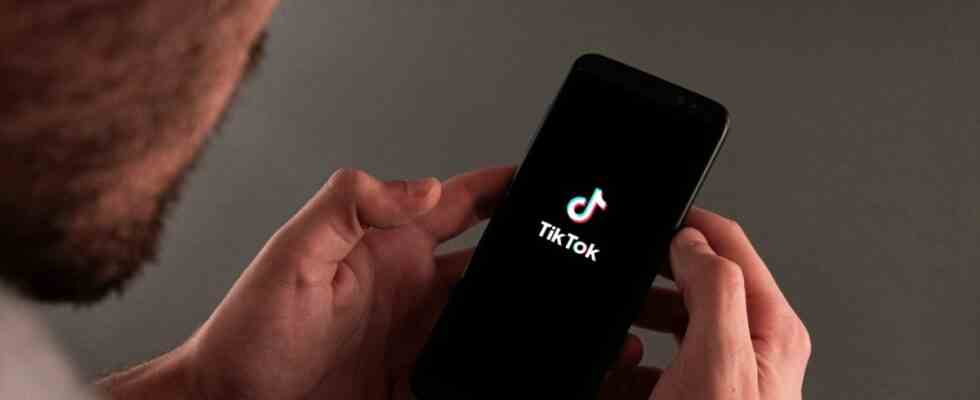Tiktok is an entertainment platform that delights more than a billion people, values privacy and has nothing to do with China. Tiktok is a spy tool that addicts kids, censors content, and collaborates with the Chinese government. The first answer is given to those who ask Tiktok’s Germany boss Tobias Henning what distinguishes his company. The second sentence contains the distrust that the subsidiary of the Chinese group Bytedance faces. Some of the allegations have received new food in recent weeks.
“Employees outside the US, including employees in China, can access data from US Tiktok users.” That’s not suspicion, those are the words of Tiktok boss Shou Zu Chew. The same statement can be found in Tiktok’s newsroom – albeit well hidden in the penultimate paragraph of one more than two years old blog entry. Although Chew’s admission is not new, it has been reported by media around the world. In the United States in particular, an old dispute is erupting again, with the central question being: Is Tiktok a risk to national security?
To understand the debate, you have to start in the summer of 2020, when then-US President Donald Trump wanted to ban Tiktok. An absurd posse ensued that revealed Trump cared only marginally for security or privacy. He used the app as a means to conduct symbolic politics and stir up fear of China. Tiktok said little and played for time. Trump lost the election, his successor Joe Biden had other concerns, and the excitement seemed to be over.
“Everything is seen in China”
then published Buzzfeed News in June of this year, research that left Tiktok in need of explanation. Recordings from more than 80 internal meetings allow the conclusion that Tiktok is not nearly as independent of China as managers and speakers claim. Apparently, most employees in the US have no idea who can access which data using which tools. “Everything is seen in China,” a member of Tiktok’s security department reportedly said in an internal meeting. “I get my instructions from Beijing,” another person who works on a specialized security and privacy team in the US is quoted as saying.
The head of the US communications authority FCC asked Apple and Google to ban Tiktok from their app stores. Nine Republican senators demanded clarification. Tiktok boss Chew responded with a letter, the the New York Times published. In it he speaks of “claims and insinuations that are incorrect and not supported by facts”, but confirms an accusation: Developers in China can view data from users in the USA. The same should apply to data from Germany. When asked by the SZ, Tiktok only referred to older blog entries and the goal of minimizing data access so that employees in China “would only have minimal access to user data from the EU and the USA.”
The problem isn’t that employees in China see more than was previously known. Tiktok could legally buy a large part of the information from companies that market such data. The distrust of Tiktok is based on two scenarios. On the one hand, there are fears that the Chinese government could force Tiktok to tap sensitive data and make it available to the state leadership.
“We have not given US user data to the Chinese Communist Party, and we would not if asked,” writes Tiktok boss Chew. In fact, there is no evidence of this. Using Tiktok for espionage would be risky, because security researchers and US authorities are suspicious of the app. So far, it looks like Tiktok is collecting a similar amount of data as Instagram or other social media apps.
Tiktok lost trust
Second, China could use Tiktok to influence public opinion. In the past, about political statements on the Tiananmen massacre or Tibetan independence. research by network policy showed in 2019 that Tiktok often throttles and directs content in ways that suggest Chinese control. This applies to protests in Hong Kong or Xinjiang, for example.
In spring, NDR and WDR revealed that Tiktok secretly muted users who used certain terms. The index contained words like homosexual, queer or gay. Comments containing “Auschwitz” and “National Socialism” were also hidden, and the name of Chinese tennis player Peng Shuai was also censored.
All a regrettable mistake, as Tiktok claimed at the time? Whether alleged espionage or alleged censorship, in the end it boils down to one question: Do you trust Tiktok? In the past, the company has repeatedly given reasons to remain suspicious.

